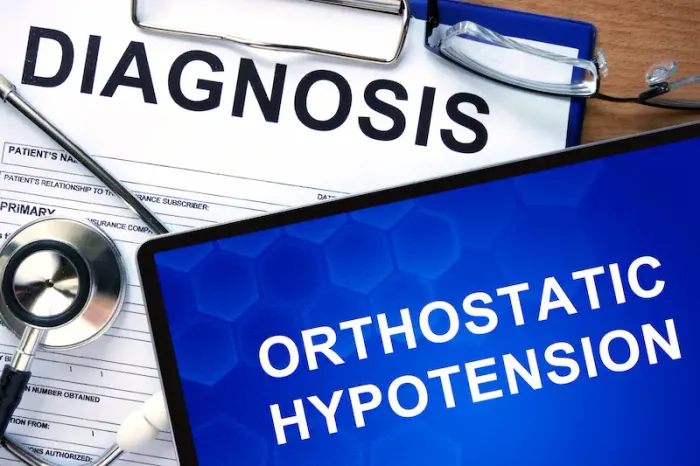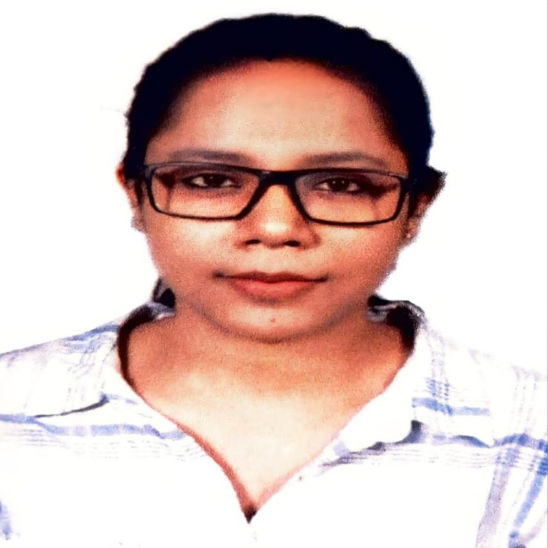Orthostatic Hypotension Causes, Symptoms, and Treatment
Understand orthostatic hypotension, its causes, symptoms, and treatment options. Learn how sudden drops in blood pressure affect health and ways to manage the condition.

Written by Dr. Mohammed Kamran
Reviewed by Dr. Dhankecha Mayank Dineshbhai MBBS
Last updated on 13th Jan, 2026

Feeling dizzy or lightheaded when you stand up suddenly? You might be experiencing orthostatic hypotension, a condition where your blood pressure drops significantly when you change positions. While occasional dizziness may not be a cause for concern, frequent episodes can affect your daily life and even lead to falls or injuries.
In this article, we’ll explain what orthostatic hypotension is, its causes, symptoms, and how you can manage it effectively.
What Is Orthostatic Hypotension?
Orthostatic hypotension (also called postural hypotension) is a sudden drop in blood pressure when you stand up from sitting or lying down. Normally, your body adjusts quickly to maintain steady blood flow to your brain. However, if this adjustment doesn’t happen fast enough, you may feel dizzy, lightheaded, or even faint.
This condition is more common in older adults but can affect anyone, especially those with certain medical conditions or taking specific medications.
Consult a Top Specialist
Symptoms of Orthostatic Hypotension
The most common signs include:
• Dizziness or lightheadedness when standing up
• Blurred vision or temporary vision loss
• Weakness or fatigue
• Nausea
• Fainting (syncope) in severe cases
• Confusion or difficulty concentrating
These symptoms usually last for a few seconds to a couple of minutes after standing. If they persist or worsen, it’s important to seek medical advice.
What Causes Orthostatic Hypotension?
Several factors can contribute to this condition:
1. Dehydration
Not drinking enough water, excessive sweating, vomiting, or diarrhea can reduce blood volume, leading to a drop in blood pressure.
2. Heart Problems
Conditions like low heart rate (bradycardia), heart valve issues, or heart failure can affect blood circulation.
3. Nervous System Disorders
Diseases like Parkinson’s disease, diabetes-related nerve damage (autonomic neuropathy), or multiple system atrophy can interfere with blood pressure regulation.
4. Medications
Certain drugs can trigger orthostatic hypotension, including:
• Blood pressure medications (diuretics, beta-blockers)
• Antidepressants
• Parkinson’s disease medications
• Erectile dysfunction drugs
5. Prolonged Bed Rest
Being immobile for long periods (after surgery or illness) can weaken blood pressure control.
6. Age-Related Changes
As we age, blood vessels lose some elasticity, making it harder for the body to adjust to posture changes.
How Is Orthostatic Hypotension Diagnosed?
If you experience frequent dizziness upon standing, your doctor may perform:
• Blood pressure measurements (lying, sitting, and standing)
• Blood tests to check for anemia or diabetes
• Heart monitoring (ECG or echocardiogram)
• Tilt table test (to observe blood pressure changes in different positions)
Get Your Health Assessed
Treatment and Management
The treatment depends on the underlying cause. Here are some ways to manage orthostatic hypotension:
1. Lifestyle Changes
• Stay Hydrated – Drink plenty of water (at least 2-3 liters daily).
• Increase Salt Intake (if advised by your doctor) to help retain fluids.
• Avoid Alcohol – It can worsen dehydration and lower blood pressure.
• Eat Smaller, Frequent Meals – Large meals can cause a sudden BP drop.
• Wear Compression Stockings – These help improve blood circulation.
2. Slow Position Changes
• Sit up first before standing from lying down.
• Pause for a few seconds after standing to let your body adjust.
• Avoid sudden movements (like jumping out of bed).
3. Exercise Regularly
Gentle activities like walking, swimming, or yoga can improve circulation. Avoid heavy lifting or intense workouts that may worsen symptoms.
4. Medication Adjustments
If your medications are causing low BP, your doctor may adjust the dose or switch to an alternative.
5. Raise the Head of Your Bed
Sleeping with your head slightly elevated (6-9 inches) can help reduce morning dizziness.
When to See a Doctor?
Consult a healthcare provider if:
• You faint frequently
• Symptoms interfere with daily life
• You experience chest pain or irregular heartbeat
• You notice worsening confusion or weakness
If you suspect orthostatic hypotension, you can book a consultation with a specialist on Apollo 24|7 for personalized advice and treatment.
Final Thoughts
Orthostatic hypotension can be uncomfortable, but with the right lifestyle changes and medical guidance, it can be managed effectively. Pay attention to your body, stay hydrated, and move slowly when changing positions. If symptoms persist, don’t hesitate to seek professional help.
Consult a Top Specialist
Consult a Top Specialist

Dr. Rajib Ghose
General Physician/ Internal Medicine Specialist
25 Years • MBBS
East Midnapore
VIVEKANANDA SEBA SADAN, East Midnapore

Dr. Ashmitha Padma
General Physician/ Internal Medicine Specialist
5 Years • MBBS, MD Internal Medicine
Bengaluru
Apollo Hospitals Jayanagar, Bengaluru

Dr. Pinaki Mukhopadhyay
General Physician/ Internal Medicine Specialist
33 Years • MBBS
Kolkata
MCR SUPER SPECIALITY POLY CLINIC & PATHOLOGY, Kolkata
(25+ Patients)

Dr. Uddalak Chakraborty
Neurologist
8 Years • MBBS, MD(GENL.MED.),DM(NEUROLOGY)
Kolkata
MCR SUPER SPECIALITY POLY CLINIC & PATHOLOGY, Kolkata

Dr. Sanjukta Das
General Physician
9 Years • MBBS
Kolkata
MCR SUPER SPECIALITY POLY CLINIC & PATHOLOGY, Kolkata
Consult a Top Specialist

Dr. Rajib Ghose
General Physician/ Internal Medicine Specialist
25 Years • MBBS
East Midnapore
VIVEKANANDA SEBA SADAN, East Midnapore

Dr. Ashmitha Padma
General Physician/ Internal Medicine Specialist
5 Years • MBBS, MD Internal Medicine
Bengaluru
Apollo Hospitals Jayanagar, Bengaluru

Dr. Pinaki Mukhopadhyay
General Physician/ Internal Medicine Specialist
33 Years • MBBS
Kolkata
MCR SUPER SPECIALITY POLY CLINIC & PATHOLOGY, Kolkata
(25+ Patients)

Dr. Uddalak Chakraborty
Neurologist
8 Years • MBBS, MD(GENL.MED.),DM(NEUROLOGY)
Kolkata
MCR SUPER SPECIALITY POLY CLINIC & PATHOLOGY, Kolkata

Dr. Sanjukta Das
General Physician
9 Years • MBBS
Kolkata
MCR SUPER SPECIALITY POLY CLINIC & PATHOLOGY, Kolkata

